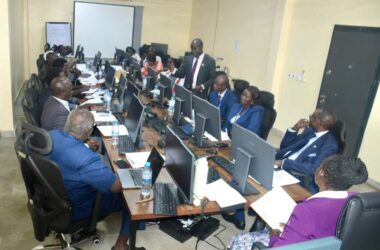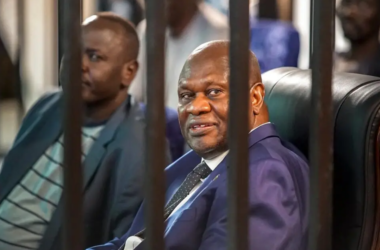By Philip Buda Ladu
The Tumaini initiative for peace in South Sudan has achieved a major milestone with the signing of eight protocols by the parties involved.
This set of protocols, known as the “Tumaini Consensus,” represents a significant step towards a potential peace agreement.
The signing took place in the Kenyan capital, Nairobi, and involved the opposition holdout groups as well as other key stakeholders.
Over the course of more than two months, the “Tumaini” mediation effort has been underway in Nairobi at a high level.
During this time, the participating parties have engaged in extensive discussions on critical issues that have been impacting peace in South Sudan.
The document is expected to facilitate the final signing of the Tumaini consensus agreement. This agreement will involve the South Sudan Opposition Movement Alliance (SSOMA), stakeholders, and the transitional government of national unity.
The signing of the 23-page document came after the transitional government, holdout groups, and other stakeholders reached an agreement on some sticky issues that have been the core of the negotiations at the Tumaini Initiative.
The “Tumaini Consensus for Sustainable Peace in South Sudan” document has eight protocols that have been resolved.
According to the document seen by this outlet, the protocols include guiding principles; humanitarian access and support; trust and confidence-building measures; a permanent ceasefire; security arrangements; and reforms.
Others are protocols on communal conflicts, armed civilians, land disputes, and guarantors who will take responsibility for the implementation of the Tumaini consensus for peace in South Sudan.
In his remarks to the media, the chief mediator of the High-Level Mediation for South Sudan, Rtd. General Lazarus Sumbeiywo, affirmed that the parties to the Nairobi peace process have made significant progress.
He underscored that consensus has been reached on the importance of inclusive peace and people-centered mechanisms.
“The parties have developed a framework and a roadmap that will lead to the achievement of sustainable peace, including development and shared prosperity for the people of South Sudan,” he stated.
For his part, the head of the government delegation to the peace process, Ambassador Albino Mathom, emphasized that the government is committed to bringing lasting peace to the country.
However, the parties and stakeholders still have other issues remaining on the negotiating table.
Early this month, the government delegation to the Tumaini Initiative came to consult with the presidency in Juba, as they reported some progress being made at the Nairobi peace process but acknowledged some contentious issues.
Albino Mathom, the head of the government delegation and chief negotiator, told the media in Juba during their consultative visit that there are a number of protocols being discussed between the government and the holdout groups.
He outlined some of the protocols, including economic recovery and management, judicial reforms, transitional justice and accountability, a permanent ceasefire, security arrangement reform, and humanitarian assistance.
According to the government chief negotiator, the rest of the protocols are pending. “We are still negotiating. We are almost to reach an agreement on the negotiations,” Mathom stated earlier.
For his part, National Minister of Information and Government rapporteur Michael Makuei said the “Tumaini Initiative” and the peace roadmap evaluation report are the bases on which the presidency will decide on the December 22, 2024, election conduct.
Late last month, the South Sudan Opposition Movement Alliance (SSOMA) and other holdout groups stressed that the Unity Government should embrace the Tumaini Initiative for lasting peace and stability.
In a joint press statement, proponents suggest that the Tumaini Initiative offers the only vital opportunity to leverage the suffering of citizens in the young East African country.
In a twist of events, early this month, the opposition groups to the Nairobi peace talks also protested that they would not sign any agreement unless the recently passed National Security Service Act 2014 (amended 2024 Bill) was repealed.




